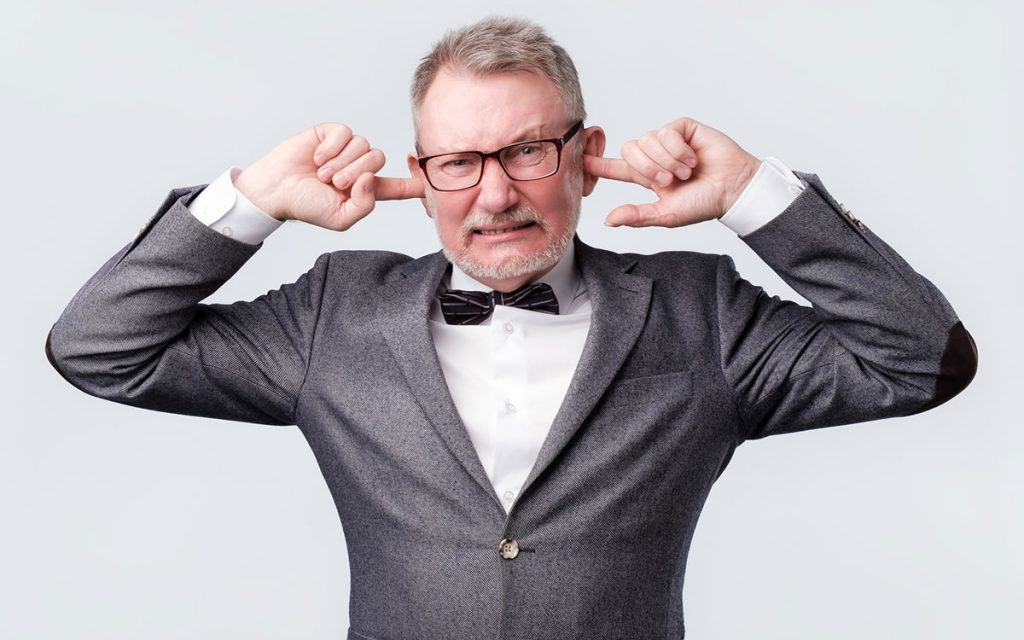Clogged ears can happen for a number of reasons, from allergies, to a cold, to earwax. Will your clogged ear clear up on its own? That depends, and there are a few things you can try to help unclog it.
We’ve all been there – the uncomfortable feeling when your ear is clogged and no amount of yawning or swallowing can make it feel better. Your hearing is muffled and you can’t get it to clear. You’ve tried decongestants and blowing your nose, but it’s lingering and you wonder whether you need to see a doctor.
Why is your ear clogged or muffled?
Your Eustachian tube, a small passageway that connects your middle ear to the space behind your nose and regulates the air pressure in your ears, can become clogged if it stays open or closed for too long. The tube naturally opens and closes as you yawn or swallow, which you may notice by a crackling noise or pop in your ears. A virus, allergy, or sinus infection could cause the ear to stay closed, while hormonal changes can make the ear stay open. Both problems will go away with time, but it could take quite a while for your ears to get back to normal. If you’re struggling to unclog your ear after a cold, try these tips or a decongestant (assuming you have no health issues that would preclude that).
But clogged ears can also be caused by a buildup of ear wax. This type of ear clog can be cleared with treatments, either at home or at a hearing specialist depending on its severity. Here are some do’s and don’ts when dealing with clogged ears:
Do: Put drops of hydrogen peroxide in your clogged ear
Hydrogen peroxide can be used to dissolve earwax clogs, but it must be placed in your ear correctly. Hearing specialists recommend that you mix the solution with warm water – making sure that the water is not too hot – and then place a drop or two in your ear with a dropper. Your ear should be tilted upward while you place the drops in your ear and you should keep it that way for several seconds to let the hydrogen peroxide dissolve the earwax clog. You may have to repeat this a few times a day for a couple of days, but eventually, the clog should clear.
Don’t: Use a cotton swab to try and unclog your ear
Seriously, this is worth repeating: don’t use a cotton swab to try and unclog your ear, because you will only make things worse. Cotton swabs actually push earwax deeper into your ear canal, which can cause a total blockage. In fact, anything that gets inserted in your ears can lead to an earwax blockage, including hearing aids and earplugs. To prevent earwax buildup, you should only use cotton swabs on your outer ear.
Do: Try yawning to clear your ear
Yawning and swallowing can help open up the Eustachian tube and unclog any mucus. In addition, there are several techniques for clearing your ears that involve using gentle pressure to push air into the Eustachian tubes.
Still feeling clogged up? Try the advice in this video by Dr. Cliff Olson.
Do: Try shaking out any water
Sometimes water becomes trapped in your ear, either from a shower or swim, and this can make your ears feel clogged. Tilting your head to the side and gently shaking it can dislodge a drop of water and clear your ear. Sometimes gently putting your finger in your ear and wiggling it will do the same thing.
Do: Visit a hearing specialist
When all else fails, you should visit a hearing specialist to clear out your earwax and unclog your ears. They can use special tools like water pics or bulb-syringes to pull out impacted earwax that otherwise can’t be removed. It’s important to see a hearing specialist for this type of treatment instead of trying it at home, since improper wax removal can cause serious problems in your ears, like a burst eardrum or permanent hearing loss.
Don’t: Light a candle
We probably shouldn’t have to tell you this, but you really should not stick a lit candle in your ear to get rid of a clog caused by wax. Ear candling is an old and very unscientific method of clearing earwax by sticking a hollow candle in your ear and lighting it. The thought is that the heat of the flame causes a vacuum which draws the earwax into the hollow space in the candle. This does not work and is very dangerous.



